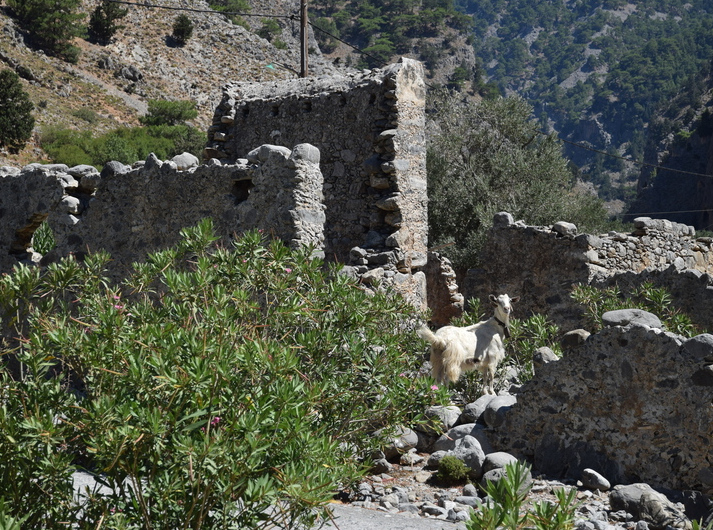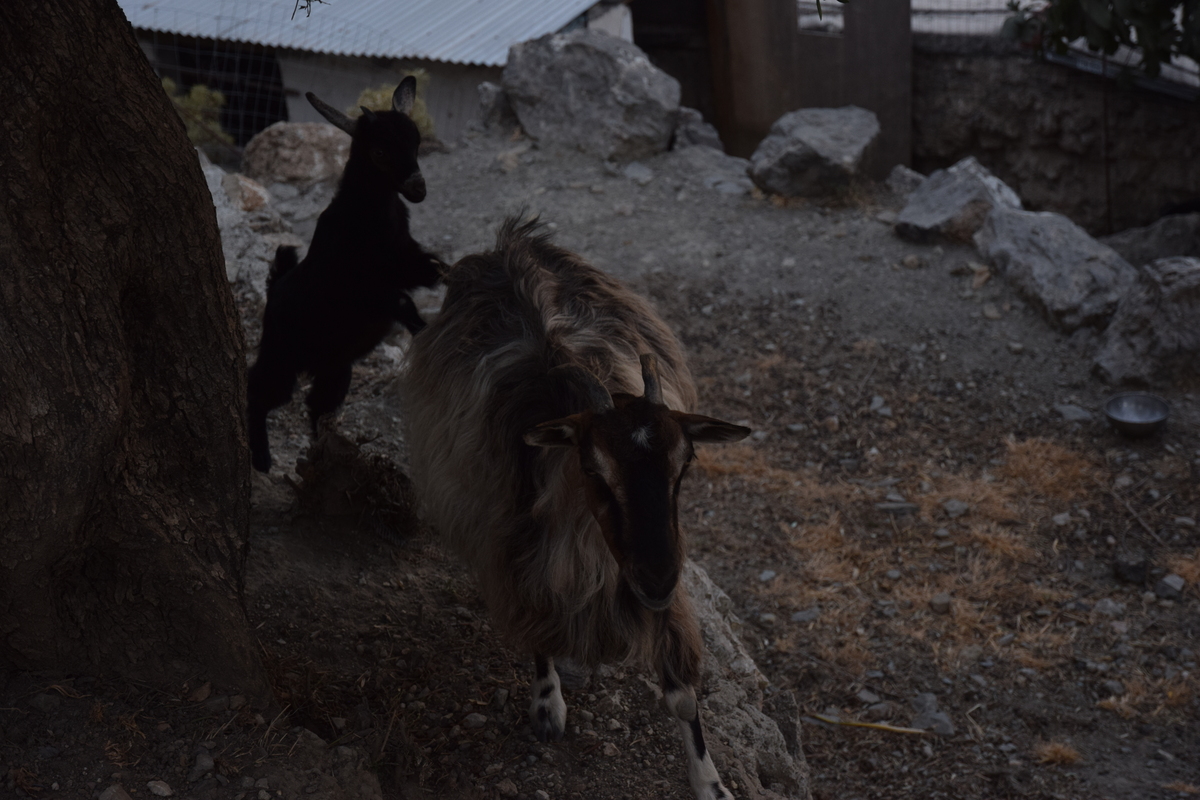
The island of Crete is poles apart. Most goats are still completely left to themselves. No cameras, no electric wires, no beans. If English farmers treat goats like toy poodles, Cretans do not even know where their goats are, «somewhere around two hours away from here». When the plan is not to share the milk, the goats wander far away in the mountains in search of diktamos. Joyful and undisturbed, they bleat at vertigoes.
Gates may exist in the groves, but they have plenty of space.
The Greek man and I waited in front of the fence for the goats to munch the mulberry leaves we brought them and he told me stories. Once he shot the billy goat who tried to hurt his one year old baby. «He was jealous of her». Shot him on the spot. Nothing wrong with this killing. Nature can be ruthless in response to outrage, whenever appears unbalance.
Protecting one's babies by immediate action is not the same as protecting inept workers from abstract dangers. Punishment will always have to exist once natural laws — the agrafomena, what does not need to be written down, — are violated. What is beyond endurance is not the act of cruelty in itself (the billy goat killed for his trespassing), but the arrangement of things where the possibility of it is eradicated at the expense of suppressing all vital force. Sense of territoriality is natural, just like the pleasure of sharing and the foundation of systems (nests and nets). Mutilating animals because of human vacuity and immotivated fear instead goes back to the roots of what is causing the dissolution of our planet's potential and beauty.
Greek man proceeds telling me about one of his goats who suckled a village kid, the fact that goats should be let suckling their own kids for at least a year, then you can share the milk, and that once they were happy to be milked, they used to come to the shepherd by themselves. They understood the shepherd's voice. Now everything has changed. The last mulberry leaves.
I ask why it has changed.
«We lost touch».

The directive is rather simple, do not treat your animals like you would not want to be treated.
I would not mind to be killed on the magnificent altar of the sacrifice, to survive under the skin of those who let me live in joy till then and loved.
Being killed to be wrapped in plastic on the shelves of a low ranked supermarket all pumped up by nitrites for longer preservation is quite a different ending though.
Still able to tell the difference?